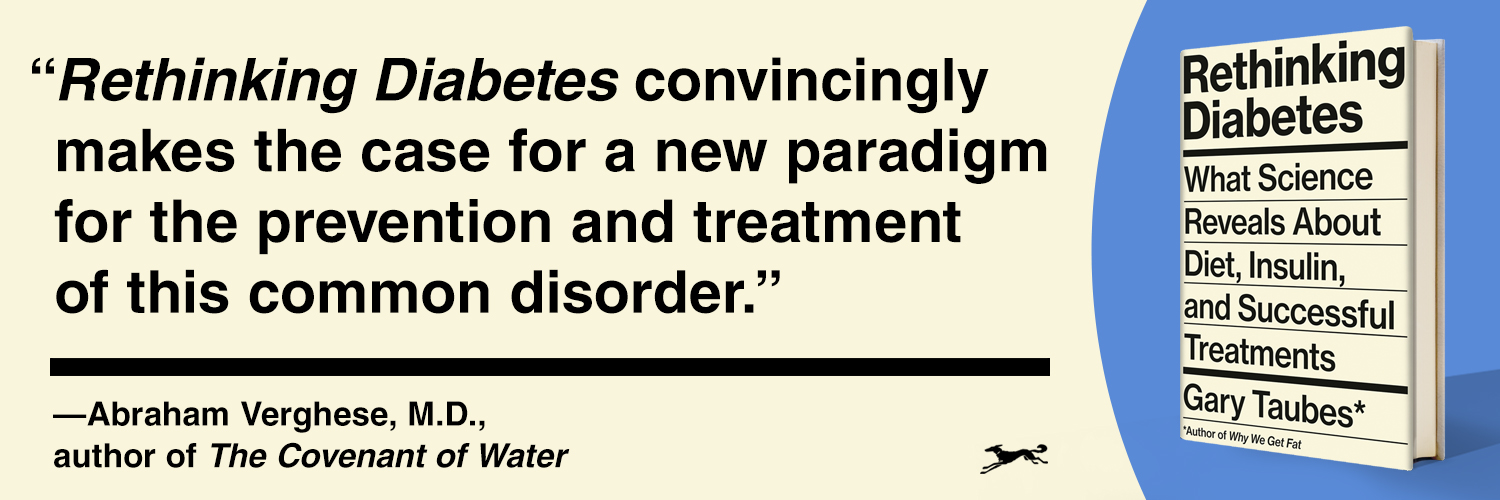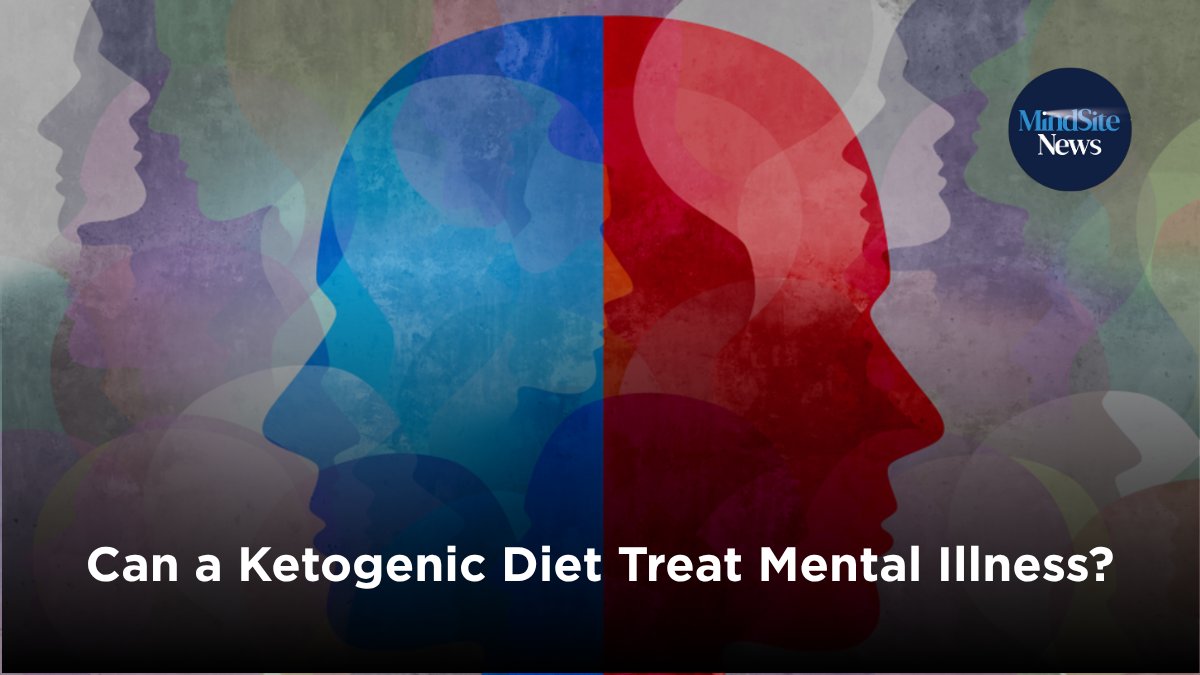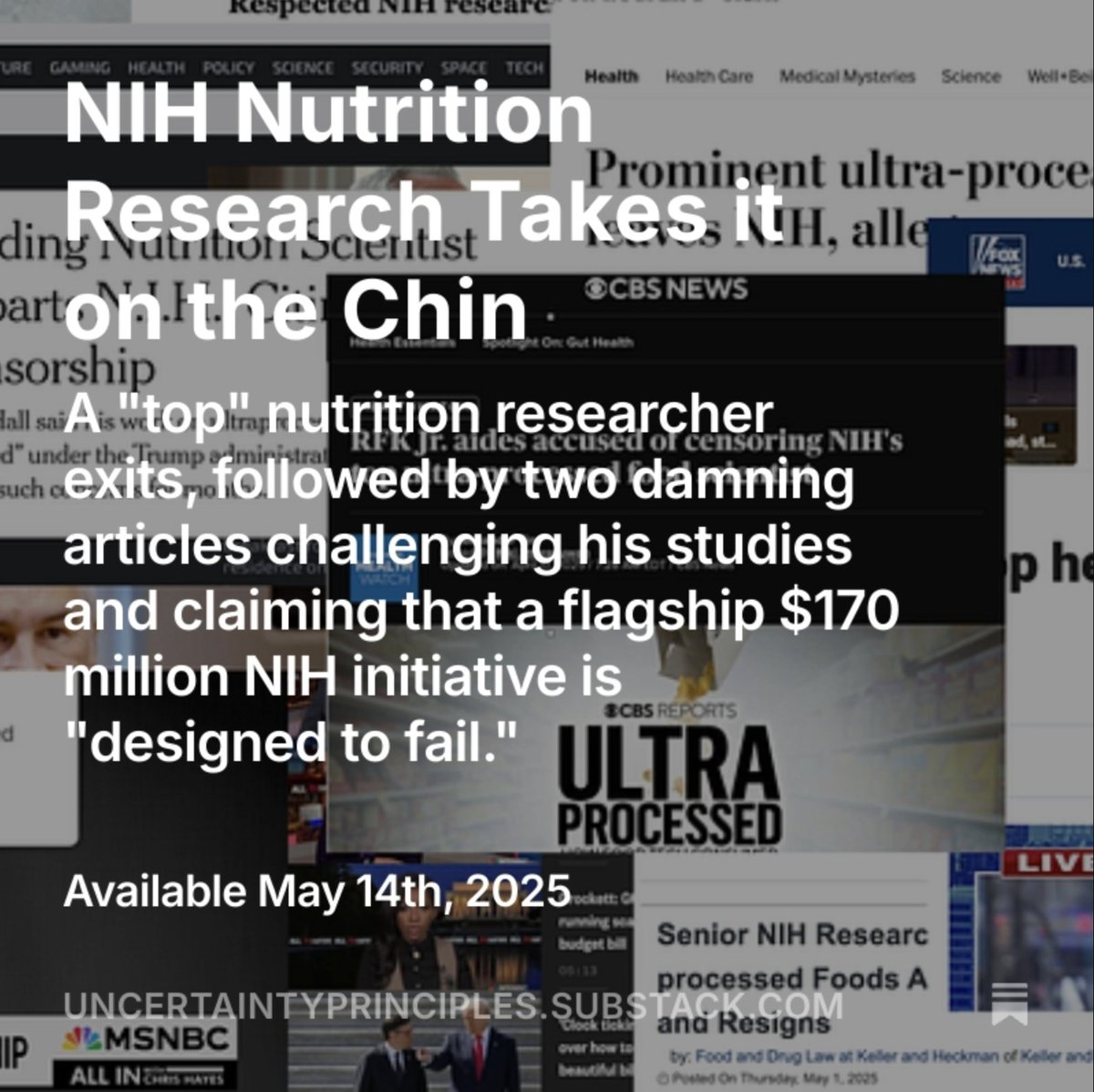
gary taubes
@garytaubes
Author of Rethinking Diabetes, The Case for Keto, The Case Against Sugar, Why We Get Fat, Good Calories, Bad Calories, Bad Science, and Nobel Dreams
Why challenge the dogma about why we get fat? Because the idea that we get fat because we overeat -- consciously or unconsciously- explains little to nothing. How about a century-old perspective instead? Nutrition & Health News This Week open.substack.com/pub/unsettleds…

Signs that the paradigm is shifting (i.e, we've made progress): The 90-y-o's working out at the Y are breakfasting on sausage and eggs in a spinach wrap. The longevity influencer is urging his clients to cut back on sugar.
My essay today in @wsj is part of our ongoing look at the pursuit of longevity. wsj.com/health/wellnes… We also held a Live Q and A with @EricTopol about living longer/healthier. That conversation is still available to read here: wsj.com/health/wellnes…
How good is RFK Jr.'s nutrition advice? According to @garytaubes, it's much better than some of his medical advice. reason.com/podcast/2025/0…
While trying to write a Substack post about nutrition journalism I came upon these two stories from the Washington Post, a decade apart. They say pretty much all you need to say about the nature of the daily press (i.e., telling time by the second hand).


The Curious Lessons of Calorie Restriction by @garytaubes What can we learn about aging well from the "potential downsides" of living hungry? open.substack.com/pub/uncertaint… Whether or not calorie restriction extends our lives, do we want to be perpetually hungry while it does so?
Why is it that calorie restriction makes us hungry and carbohydrate restriction doesn't, and yet they both induce weight loss? There's a simple answer and then there's a thoughtful answer. Which is right has profound implications. The Curious Lessons of Calorie Restriction…

What a famous NBA basketball player, his imaginary fraternal twin, and two English bulldogs from a century ago tell us about the illogic of the idea that we get fat because we eat too much. Of Course Overeating Makes Us Fat... Except When It Doesn't? open.substack.com/pub/uncertaint…

I'm confused. When @KevinH_PhD starts sounding like me publicly--suggesting the primary problem with the American diet is the sugar content--I have to consider the possibility that finally we're both right. wsj.com/business/food-…

Excellent article, thanks. Just read both of these books. Georgia Ede's book is a critical read for everyone, not just those struggling with mental illness.
If I'd read an article like this when our son had his first manic episode back in 2016, I would have immediately offered to help him try a ketogenic diet. But there were no articles like this, then, and there were no clinical trials. Now I get to curl up on an outdoor sofa…
This is a terrific article by @GordySlack on using ketogenic diets for mental illness. @Metabolic_Mind mindsitenews.org/2025/06/16/can…
See the note from Kevin Fontaine at UAB. There's little I can add, other than my request that we all contribute. Join me and make a gift to Dr. Sarah Hallberg Endowed Scholarship for Diabetes Research and Prevention givecampus.com/ot0l3i

This is a terrific article by @GordySlack on using ketogenic diets for mental illness. @Metabolic_Mind mindsitenews.org/2025/06/16/can…

How did American explorers get by in the early 19th Century? They lived, unsurprisingly, on mostly meat. Here's General William Ashley on the experience of his explorations in the 1820s: "the circumstance of the uninterrupted health of these people who generally eat…

Are low carb and ketogenic diets being misrepresented by flawed nutrition studies? In this video, @bschermd breaks down a controversial NIH-funded study that compared low fat and low carb diets that, like many nutrition research studies, was deeply flawed and designed to fail.…
Thought experiment: assume for the moment that ultra-processed food is a scientific-sounding rebranding of the concept of junk food. Now imagine that the nutrition research community is dedicating its research to determine why people eat so much junk food, as though it was all…

Is nutrition research getting the support it needs to inform public health policy? Despite the rise in chronic diseases related to lifestyle factors like diet, nutrition research only receives $2.2 billion of the $30 billion NIH budget. At first glance, this may seem like a lot…
Super video with @garytaubes and @ifixhearts I don't know about you but I prefer the "diet by health" and not the "diet by consensus" ......just sayin. youtube.com/watch?v=BFBmd1…
I live with an IRREVERSIBLE metabolic disease. I was invited to Washington D.C., to share my 17-year journey with chronic disease and our research to confront America’s chronic disease epidemic. 👨💼📢 Here’s what I shared & 5 policies outlined (see substack) to reverse this…
Nicely summarized and worth a read.
🧵1/ Excuse me, what gives? We’re eating less red meat per capita than decades ago. 🍗 Poultry replaced beef 🌽 Seed oils replaced butter/lard 🥗 Ultra-processed plants dominate So why are colorectal cancer rates rising in young adults? 📉🥩📈🧠 🔗 ourworldindata.org/grapher/per-ca… 2/…
“Pathological” science? To solve the chronic disease epidemics, we need to get the research right. @garytaubes on the failure of nutrition science to correct fatally flawed diet trials … and avoid these blunders in the first place. substack.com/home/post/p-16…
NIH Nutrition Research Takes it on the Chin Last month, @KevinH_PhD, the "top" nutrition researcher at NIH, took early retirement, citing censored by the MAHA folks. A week later, the BMJ and STAT publish articles by @davidludwigmd and collaborators asserting that the NIH…
